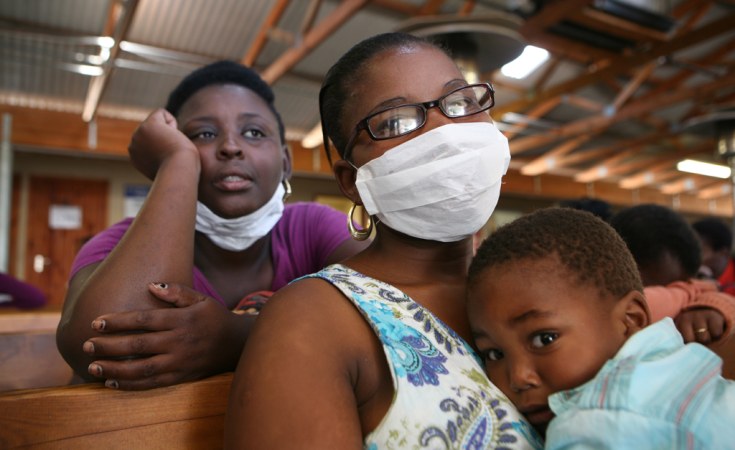Capetown — The health and wellbeing of South Africans is worsening rather than improving, according to a key indicator.
Globally, tuberculosis (TB) rates are declining, but in South Africa rates are up. This negative trend is mirrored in the country's maternal mortality rates - the number of women who die during or after childbirth.
While neighbouring African states are seeing a decline in maternal deaths, South African rates are rising.
Speaking at the "Towards Carnegie III" conference on strategies to overcome poverty and inequality, Nulda Beyers from the Desmond Tutu TB Centre at the University of Stellenbosch said there was a complex interaction between poverty and TB.
"TB is the child of poverty, but also its parent and provider," said Beyers, quoting her centre's patron, Archbishop Tutu, who survived TB as a boy.
Beyers said that a study of TB in Zambia, Malawi, Mozambique and Tanzania showed that their rates were coming down whilst South Africa's were increasing.
"Why is this happening?" she asked. "We're not poorer than these countries, yet TB is four times as common in South African adults as among Zambians." TB rates among South African children were also significantly higher than other children in the region.
Drawing on data from South Africa's General Household Survey 2002-2007, Beyers said the evidence showed a clear link between poverty and TB.
"The factors promoting the development of this disease are largely social and environmental," said Beyers. They include housing, nutrition, family size, exposure to toxins such as tobacco smoke, and the presence of other conditions such as HIV infection and diabetes.
Further research by the Tutu TB Centre in the Stellenbosch region outside of Cape Town plotted levels of poverty and education against TB.
In all cases, the poorest areas had the highest TB rates. Richer areas had much lower levels of TB.
Beyers said the reason that TB rates were high was not because South Africans didn't go to clinics and hospitals for treatment, it was because of poor levels of treatment and inconsistent treatment.
"Poor treatment is worse than no treatment," she said, explaining the dangers of interrupting or failing to complete courses of TB treatment.
"Once people access health care, what happens to them?" she asked. "The Constitution guarantees everyone's right to health care, but it must be a right to receive proper care," she added.
Beyers said that government plans for development acknowledged that health services were fragmented and there was systems failure in many instances.
"What must be done? We must fix health services for the poor," she said.
"We have to provide proper services and not just make services available!"


